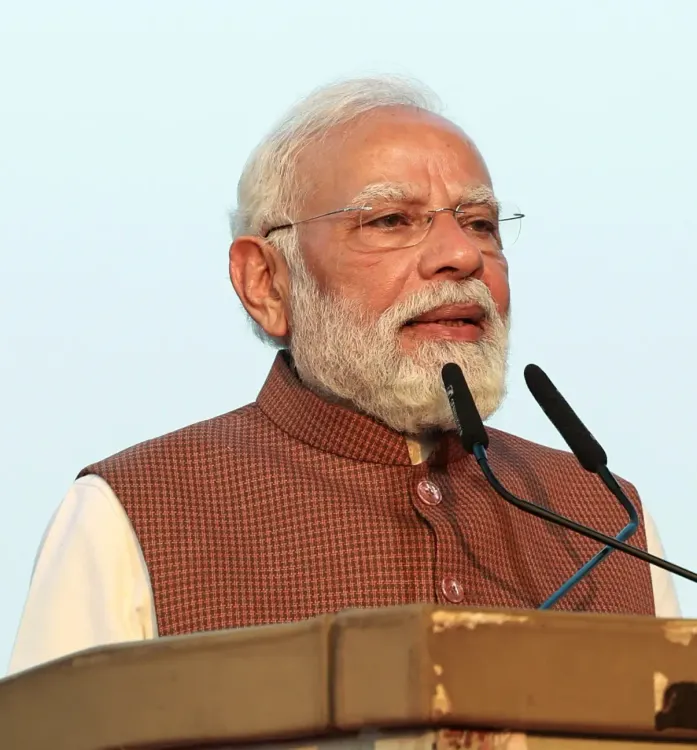Can PM Modi Reshape Global Climate Finance?

Synopsis
Key Takeaways
- Narendra Modi stresses the need for reform in climate finance.
- The call for $1 trillion annually from developed countries is crucial.
- India's draft Climate Finance Taxonomy is a step towards effective global governance.
- Accountability and transparency are paramount for the success of climate finance.
- The current system disproportionately favors wealthy nations.
New Delhi, Nov 18 (NationPress) Prime Minister Narendra Modi emphasized the significant opportunity to redefine global climate finance through enhanced transparency and unified standards. In a post shared by PMO India on its X handle on Tuesday, he referenced an article by Union Minister Bhupender Yadav, which highlights India’s draft Climate Finance Taxonomy and the expansion of domestic green finance as examples of proactive leadership that can steer a more effective global framework for the future.
The article notes that India’s G20 Presidency conveyed a clear message: the multilateral framework from the 20th century is no longer effective. This inadequacy is particularly dangerous in the realm of global climate finance. The necessity for multilateralism is undeniable, as existential threats like cyclones and heatwaves do not recognize national borders. We need a system that serves as an equalizer; a platform for solidarity, shared technology, and safeguarding the most vulnerable. However, the Global South has been met with empty promises, unclear accounting, and a system that favors creditors over climate action. This existing structure is slow, exclusive, and lacks accountability.
Furthermore, the article mentions that at COP26, PM Modi urged developed nations to mobilize $1 trillion annually, asserting, “as we track climate mitigation, we must also track climate finance.”
At COP28, he reiterated: “Climate finance and technology are crucial to realize the aspirations of the Global South.” For years, this uncertainty has eroded trust. Is it a grant, a subsidized loan, or just a rebranded development initiative? This ambiguity obstructs essential investment vital for climate action. India alone requires $467 billion by 2030 to decarbonize hard-to-abate sectors. Globally, annual requirements surpass $7 trillion, yet financial flows remain frustratingly low, he pointed out.
The current system's key players, including the Multilateral Development Banks (MDBs), Green Climate Fund (GCF), and Global Environment Facility (GEF), are failing to respond adequately to this urgent moment. Firstly, there is a lack of accountability and transparency. Secondly, power is still centralized, with international financial institutions governed by frameworks that grant disproportionate influence to a select few wealthy nations. Thirdly, accessibility is a significant barrier. For developing nations, complicated application processes delay the arrival of crucial funds, if they arrive at all. This challenge is intensified by high borrowing costs and increasing debt, forcing countries to choose between servicing creditors and safeguarding their citizens, as highlighted in the article.
This is why India, during its significant G20 Presidency, championed reforms in the MDBs, the article concludes.










